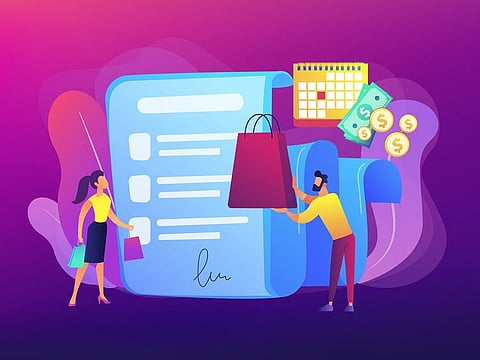Credit cards can beat 'buy now, pay later' schemes: Here's how
BNPL's promise of no interest, upfront fees seem more appealing than a credit card’s terms

At first glance, a 'buy now, pay later' plan’s promise of no interest or upfront fees can seem more appealing than a credit card’s terms. Dividing a transaction into, say, a pay-in-four installment plan sounds straightforward and manageable.
Unlike credit cards, though, these plans lack certain consumer protections and are sometimes unpredictable. In this way, credit cards can be superior to pay-in-four 'buy now, pay later' plans, making it easier to manage payments, dispute transactions, get refunds, establish credit or access certain debt-payoff options.
Here are some cases in which a credit card can come out ahead:
1. Credit reporting
Credit card issuers typically report on-time payments to major credit bureaus — which can help you establish a credit history. That’s not always the case with 'buy now, pay later' companies.
Depending on the lender and the plan, you might only see an account reported to the credit bureaus if it is sent to collections after you default on a loan — and that kind of blemish can stay on your credit report for several years.
And late fees are possible, given how easy it is to rack up several buy now, pay later plans at once. Because these loans don’t always appear on credit reports, future lenders may not have visibility into how many you’ve opened.
2. Easier payment management
Credit cards simplify tracking multiple purchases and payments in one place. If you’re juggling 'buy now, pay later' plans from several companies with different due dates, it’s not as seamless.
Some 'buy, now pay later' companies may require automatic payments linked to a bank account, but that can lead to overdraft fees if that account lacks funding. Compared with light users of 'buy now, pay later' plans, heavy users have a larger decline in financial health in factors like overdraft fees or late fees, according to the study “Buy Now Pay (Pain?) Later,” co-authored by Ed deHaan, associate professor at the Foster School of Business at the University of Washington.
A credit card can also derail a budget, but it has a big guardrail: There’s a credit check that may factor in your income and other debts.
“That protection, which can be a frustrating thing for a consumer who is trying to get credit, actually can be a really helpful protection to stop someone from getting in over their head on multiple lines of credit,” deHaan says.
3. Transperant disclosures
Regulatory requirements on credit cards can offer additional protections. Regulations often require credit card issuers to provide disclosures that show the card’s terms and a box that outlines the costs of carrying the card such as fees, interest rates, minimum interest charges, grace periods and other details.
4. Consumer protections
If an item arrives damaged, its quality is less than ideal, it’s stolen or it never arrives, you might be unpleasantly surprised by your buy now, pay later terms.
Credit cards allow for easier disputes and returns. If you’re only making a return, the process to get money refunded to a credit card is simpler compared with that of some buy now, pay later plans. For billing dispute and error resolution, credit card holders have legal rights that may include not having to make a payment for the item while a claim is pending. The laws also forbid credit card issuers from charging multiple late fees for the same missed payment.
Terms vary by company, but some plans might still require payments while a dispute or refund is pending. With a linked automatic payment plan, the company may continue withdrawing funds from your bank account. Failure to meet payments may result in late fees.
5. Debt management options
For burdensome 'buy now, pay later' plans, debt payoff options may be limited compared with those available for credit card balances.
For instance, nonprofit credit counseling agencies have relationships with credit card issuers that may facilitate combining multiple balances into a debt management plan, with one payment and a lower interest rate. With 'buy now, pay later' companies, the relationships with such agencies may be limited or lacking.
Sign up for the Daily Briefing
Get the latest news and updates straight to your inbox



